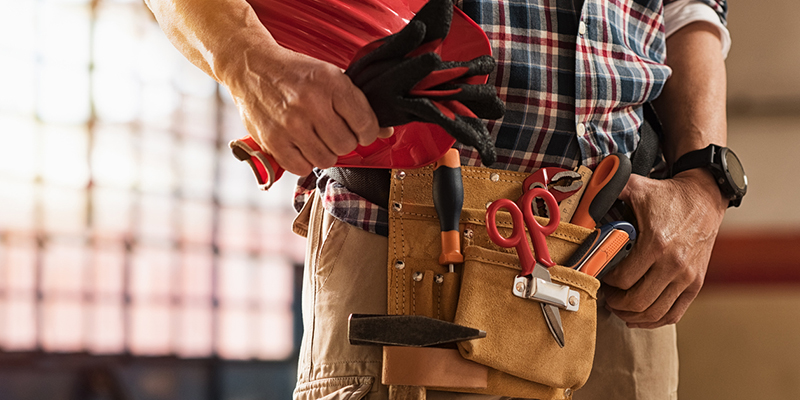
There are two types of people: the ones who call in professional service for any kind of issue, and the ones who try to fix every kind of issue themselves.
This article is written for the second kind of person.
If that’s you, congratulations – you’ve probably saved a good bit of money over the years learning how to fix a variety of issues that, supposedly, “professionals” should’ve handled. That’s pretty cool.
Of course, you’ve also probably put more time than you’d like to admit making that happen, and you may even have occasionally botched a job trying to fix something yourself. Everything has its pros and cons.
At Rod Miller, our goal is always to provide you with the comfort you and your family deserve. That means working with you to ensure that your HVAC systems are running as smoothly as possible. It also means, in this case, offering a bit of friendly wisdom to help you ensure that, when you consider doing HVAC repairs yourself, you’re not putting yourself or your property at risk.
With that in mind, here’s a quick review of HVAC repairs DIYers should try, along with a review of the tasks that even the most daring DIYers shouldn’t touch.
HVAC Repairs You Can Do Yourself
Here are a few HVAC repairs we’ll give you the greenlight to take on yourself.
Adjust Your Thermostat Settings
It happens more often than you’d think: people call in the HVAC technician for a broken system, only for the technician to find on arrival that the settings on the thermostat had been adjusted incorrectly – say, for example, that the setting for “Cooling” had been activated when the resident wanted heat.
DIYers: we give you full permission to adjust and optimize the settings on your thermostat yourself. It’s not always as simple as switching from “Cooling” to “Heating” – especially as more homes begin to incorporate smart thermostats into their indoor environments – but it’s always worth learning the intricacies of your thermostat yourself.
Replace Your Air Filters
Truth be told, even people who are DIY-averse should be regularly replacing air filters. It’s an important and easy step to take in maintaining your HVAC system’s performance.
Three months is generally the timeframe you should consider for air filter replacement. Any longer than that, and dust and dirt will start to negatively impact your system.
DIYers: definitely replace your HVAC air filters.
Clean Your Air Vents
Finally, you can also go for cleaning your air vents yourself.
For traditional HVAC systems, air vents facilitate the flow of air throughout the home, but over time they can accumulate dust and debris, restricting airflow and even causing issues in air quality that can negatively impact your health.
Cleaning your air vents yourself generally only takes a screwdriver, cleaning supplies, and a little elbow grease – and it can help to prevent air flow and air quality issues.
HVAC Repairs You Should Leave to the Professionals
On the other side of the coin, here are a few repairs you should call in service for to protect your equipment and your own safety.
Electrical Repairs for HVAC Units
A general rule of thumb for anyone who isn’t an electrician: don’t touch electrical repairs.
Electrical repairs for HVAC units are no exception. HVAC systems, after all, run on electricity. In the face of a problem, it can be tempting to attempt to repair loose cables or take a look at wiring shorts, but it’s much safer to leave those things to the hands of a trained technician. Failure to do so can cause system damage and personal harm.
Don’t put yourself at risk: leave electrical repairs to the professionals.
HVAC Refrigerant Replacement
Similarly, even DIYers should stay away from refrigerant replacement: Freon, a chemical commonly used in HVAC refrigerant, is qualified federally as a hazardous material. In fact, it’s actually illegal for non-licensed individuals to handle.
Even if you feel confident that low Freon is causing your AC unit to blow warmer air, and imagine that the replacement should be relatively simple, don’t attempt to perform it yourself. Call in a trained professional who’s legally certified to handle the situation.
Issue Diagnosis and Preventative Maintenance
Finally, this is a more general point, but it’s one worth making: you shouldn’t attempt to diagnose complex HVAC system issues yourself.
The reason is this: often, HVAC issues have underlying root causes. For instance, you may identify a broken part in a unit and fix it, only to have it break again because the circumstances that caused it weren’t resolved.
Trained HVAC technicians have studied, practiced, and completed certifications to acquire their skills and knowledge. They have the experience necessary to understand and fix complex issues, so they’re able to get to the root of things.
And, they’re able to review systems for preventative maintenance purposes so that systems maintain functionality for longer; at Rod Miller, our service agreements include system checkups that generate cost savings over time.
When You Can’t DIY, Call Rod Miller
If you’re a DIYer, we admire your can-do spirit – but we also want to make sure that you stay safe and don’t compromise the comfort you deserve. When the time does come to call in the professionals for your HVAC maintenance needs, get in touch with us. We’ll take care of your Bethesda, Gaithersburg, or Maryland region home.
We’ll treat you like family, we’ll be transparent, and we’ll get the job done right. Even for those who like to handle everything themselves, our promise, always, is that you can trust your home to us.


